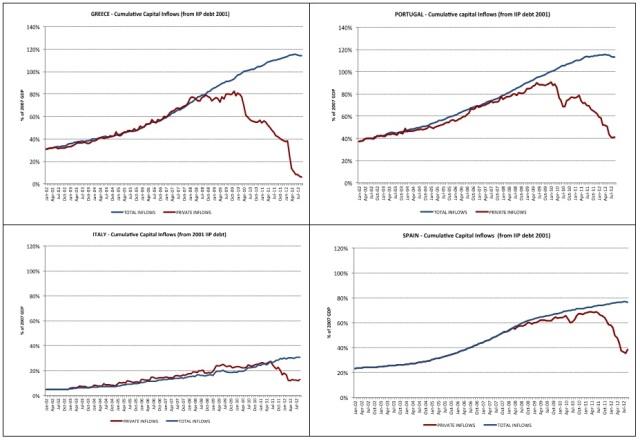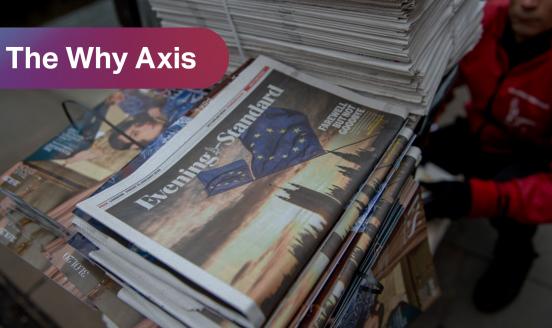Capital outflows in the euro area: is there a sign of relief?
An update of the underlying data to September 2012 suggests that private capital outflows from a number of Southern European countries has showed sign
Since the beginning of the crisis, capital outflows from the Southern European countries have been a matter of increasing concern. The importance of them has been already pointed out in several occasions; see in particular here and here.

However, it seems the outlook might have finally started to change. An update of the underlying data to September 2012 suggests that private capital outflows from a number of Southern European countries has showed signs of stabilisation, over recent months (Figure 1). Apart from the case of Italy, where the situation has remained stable over both the second and the third quarter of 2012, the change in the dynamics of capital flows has occurred in September, probably driven by the introduction of the OMT and the announcement of the plans for banking union. Both Spain and Portugal in fact posted in September the first net private capital inflow since one year (or even longer).
This finding is also consistent with the most recent data on the use of Eurosystem liquidity (downloadable here) that show how Italy and – more sizably – Spain have been reducing their borrowing of central bank liquidity over last three months. In particular, borrowing via the Main and Longer-Term Refinancing Operations has decreased by 10.9% in Spain between August (when it reached a peak of 411.7bn) and October 2012.
It is certainly too early to draw conclusions and the improvement remains very small, but the situation has started to move in the right direction and it is very important not to lose the positive momentum.



